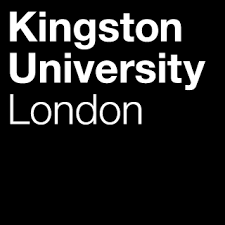Trauma care: initial assessment and management

Course overview
This module is suitable for nurses and other registered healthcare professionals directly involved in the emergency care of trauma patients. A range of traumatic injuries will be explored but the focus will be upon initial assessment and management of these patients in the context of the emergency department.
The module learning outcomes, indicative content and assessment strategy are aligned to the National Major Trauma Nursing Group (NMTNG) “Nursing and Allied Health Professionals - Trauma Competencies in the Emergency Department - Adult Level 2” (NMTNG, 2022) document and the National Service Specification for Major Trauma D15/S/a (NHS England, 2013).
Aims
The module will enhance participants’ core knowledge and skills relating to the assessment, initial management and care of the trauma patient.
What and how you will learn on the module
How you will learn:
This module is delivered using a blended learning approach which integrates a variety of on-campus and online activities, supported by Canvas, the University’s virtual learning environment. A complementary range of activities are employed to engage you in the critical exploration of key topic areas, and the completion of formative tasks during the module also helps to keep you on track with the learning and gain feedback on your understanding of the content. A sense of community is developed and maintained with frequent opportunities for peer learning, enabling you to share your practice experiences and to learn from each other. Level 6 and level 7 students taking this module may be taught together.
Academic writing and critical thinking skills are developed through ‘The Critical Thinking Skills Toolkit’ and other academic practice activities embedded within the module, that have been designed to nurture the skills needed to facilitate you to become a thoughtful, objective and reasoned thinker. This will help you tackle the assignment(s) confidently, understand marking criteria, use evidence, take a reasoned approach, make structured arguments and engage with other points of view.
What you will learn:
Assessment and management of trauma patients in all age ranges: from paediatrics and adolescents, through adults, to older adults.
Epidemiology of trauma and an overview of trauma networks.
Human factors, teamwork, and communication skills.
Managing challenging scenarios, such as with confused and agitated patients, breaking bad news, and building the confidence to ‘speak up’.
Legal and ethical aspects of trauma care.
The trauma primary and secondary surveys (<C>ABCDE approach), including:
• recognition of shock, and catastrophic haemorrhage management;
• initial airway assessment and management skills;
• the role of the skilled assistant in rapid sequence induction and conscious sedation;
• recognition of, and key interventions in, life threatening chest injuries: blast injury, tension pneumothorax, open pneumothorax, massive haemothorax, flail chest, cardiac tamponade, management of chest drains and resuscitative thoracotomy;
• intravenous access: central, peripheral, and intraosseous vascular access;
• pelvic and long bone injuries including pelvic binder and long bone traction devices and the management of open fractures;
• head injury management, including prevention of secondary insult;
• pain management;
• packaging and transferring injured patients.
The assessment, management and special considerations of the following patient groups:
• confused, agitated & aggressive patients;
• spinal fracture and spinal cord injured patients;
• bariatric patients;
• burns patients;
• pregnant patients.
Academic practice:
• database and literature searching;
• referencing and avoiding plagiarism;
• critical thinking skills.
Course length: 5 teaching days plus moulage
Assessment
Case review (2000 words) and Moulage
Learning Outcomes
Differentiate the pathophysiology of trauma caused by a variety of injury mechanisms in a variety of patient groups.
Demonstrate systematic and proficient initial assessment skills for the polytrauma patient and evaluate the data in relation to common life-threatening injuries.
Identify and critically analyse appropriate initial management for common life-threatening traumatic injuries.
Demonstrate an in-depth understanding of current specialist trauma care and evidence-based practice for the care of a patient following major trauma in an emergency setting.

Course details
Course leader
Adrian Robinson
Administrator
Kingston WFD Admissions Team
Course delivery
Blended Learning. On-Campus sessions subject to change. If government advice changes, we may need to update our plans. If we do so, we will update this information, and will keep current students and offer holders informed by email.
Downloads
Prerequisites
Funding
£1,156.00

Make an enquiry
Make an enquiry
